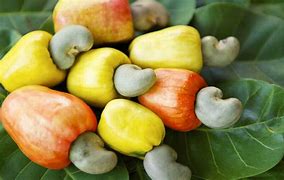Ghana ranks third largest exporter of raw cashew nut across Africa, after Cote d’Ivoire and Tanzania, but misses out big in revenue, without value addition.
Between 2014 and 2018, Ghana exported on average 172,000 tons of raw cashew nuts annually, while generating $247 million in revenue between the same period.
Likewise, between 2000 and 2018, global trade in cashew more than doubled to 2.1 billion kgs. About two-thirds of the growth came from Ghana and its African peers. With such a huge supply capacity, Ghana can make large gains than currently, left for its lack of processing industries.
According to the UNCTAD report, Ghana, like its African cashew-producing peers have the potential of cashing in big by adding value before they are exported.
At least, the raw nuts should go through deshelling before exported. Even more value addition will serve a big win for the economy.
About 90% of the raw cashew nuts grown in Africa are traded in the global market. Of this proportion, less than 15% of the nuts are deshelled before exported while the remaining 85% exported mainly to Asia are deshelled, adding value to the commodity.
When exported to Asia, just two Asian countries- Vietnam and India- accounted for about 98% of global raw cashew imports between 2014 and 2018. Meanwhile, raw cashew imports which end up in Europe and North America go through processes of value addition.
According to the UNCTAD data, 60% of traded kernels are roasted, salted, packaged and consumed as a snack. Better still kernels are used for ingredients in some drinks, bars or other products.
How much Ghana is losing out?
How much revenue loss, although difficult to ascertain, UNCTAD notes that variation in export prices give a hint.
For example, the report indicates that, in 2018, the export price of cashew kernels from India to the EU reached about 3.5 times more than the price paid on exports from Cote d’Ivoire.
After secondary processing in the EU, the price of kernels reached about 2.5 times higher than when exported from India. And about 8.5 times higher than when exported from Cote d’Ivoire.
“This shows the potential for value creation in African cashew-growing countries, 14 of which remain classified as ‘least developed. “And value creation can lead to better wages for workers and more money for the local economy.”
Ms. Miho Shirotorio, Head, UNCTAD’s trade negotiation and commercial diplomacy.
This notwithstanding, the narrative is gradually changing. Just this week, the Ghana Commodity Exchange undertook a reserve trading auction for raw cashew for the first time.
This initiative aimed at engaging market players in the cashew value chain. At least, farmers can get fair and competitive prices for their produce. Also, market actors can have adequate market information to ensure a win-win situation for both buyers and sellers.
This is a good turn that rightly deserves another. But the next action must be to focus on an aggressive move towards processing raw cashew and achieving its potential in terms of value.
READ ALSO: GASIP supports 90,000 smallholder farmers























